- Home
- Douglas Clegg
Afterlife Page 2
Afterlife Read online
Page 2
After Julie wiped her daughter’s soles off with her own shirttails, and slipped her small feet into what Livy called her “sockets,” the small white and pink socks, then into her shoes, they walked back down the path that led to where she’d parked the car at the shoulder of the road below. The wind picked up and died down frequently. Her daughter clutched her hand as if she were afraid of being blown off the path. They watched some Canadian geese that had gathered on a large patch of grass near a creek, and Livy told a joke that her father had told her, “Do you know how I know those are Canadian geese?”
“No.”
“They say ‘Quack, eh,’” Livy said, and giggled as if it were the funniest joke in the world.
“You need a new joke,” Julie said, smiling.
Then, the cell phone began vibrating in the pocket of her overstretched wool sweater.
“Is it your job?”
“Maybe,” Julie said, trying to ignore the slight downward turn to her daughter’s voice whenever Julie’s work at the hospital came up. In some respects, Livy seemed like an old soul, and could see right through her mother. “Liv, aren’t we having fun?”
“I guess. I just miss you when you’re gone.”
“But you see Daddy.”
Her daughter didn’t answer. The awful and stupid guilt that Julie had worked so hard to overcome— about going back to work in the hospital again after having stayed home with Livy for her first four years— warmed her face.
“But you want to work in a hospital, too, you told me,” Julie said. “When you grow up? And you like all the stories I get to tell you from the ER. Aw, honey, I get five days with you each week. Two days away isn’t so bad.”
“I know,” Livy said, sighing. “It’s okay Mommy. I know they need you.”
When Julie looked at the number on her cell phone, she saw that it was not the hospital at all.
2
Julie dropped Livy off with Laura Reynen, the young mother who ran daycare out of her house and babysat far too often for Livy. Laura was in her mid-twenties, with two young children, and had arranged her life such that she could stay at home and run the business from a small cottage-like house, complete with wisteria creeping up the trellis at the side of the house, and an enormous fenced-in backyard, full of swing-sets and sandboxes and a double slide. Laura could take one of the kids on a moment’s notice, and Livy adored being at her home with the great playground in the backyard. Laura was the mother that Julie knew she never would be—happy with the clutter, happy with kids all over the place, happy in a way that Julie barely understood, since Julie felt like a screw-up of a mom.
At the front door, Laura, with a baby in her arms, said, “So I can expect you back when?” She always had the aura of joy around her, as if young children were somehow meant to be attached to her arms and legs and running in and out the backdoor all the time.
“Two hours, tops,” Julie said. Then, looking down at Livy, “We’ll eat junk food tonight, okay?”
“Mommy, you look sad,” Livy said.
Julie leaned down, and gave her daughter the tightest hug she could, kissing her on the forehead. “You go play, all right?”
“Only if you promise to read to me tonight.”
“Promise,” Julie said. She hoped she wouldn’t have to break that promise.
3
The Rellingford Learning Academy was a small private school for children with certain behavioral issues. The Academy sat on three well-manicured acres at the end of a circle of buildings. Although there was a blacktop and a baseball diamond in the back, there was little else to suggest a school other than the name at the front driveway. The school had on-staff medical personnel as well as a psychologist and a psychiatrist on-call who also conducted therapy sessions among the student body of sixty-four students from grades 6 through 12. Although the school was expensive and at times administratively pig-headed, Julie had convinced Hut that it was the best place for Matt, despite the added expense, at a time when Matt had been getting increasingly violent and uncontrollable at the public school—and at home.
Julie tried to put that episode out of her mind: that moment when Matt had pulled a kitchen knife on his father. Matt’s face full of rage, his eyes wild as if he wasn’t even seeing who stood in front of him, spit flying from his lips as some of the worst language that Julie could imagine came out of that boy’s mouth.
It wasn’t Matt. It was something else. A mental disorder that hasn’t yet been diagnosed. When he’s older, they’ll find something. They’ll get the right meds to fix Matt’s problem. I know they will.
At the front desk, near the secretary’s office, Julie flipped through one of the magazines (Psychology Today, perhaps, but she wasn’t really noticing), and finally the headmaster came in.
She glanced up from the magazine. “He’s all right?”
“He’s resting. He’s fine now. I’d like you to speak with Dr. Maitland, first.”
“Maybe I should drive him over to Dr. Swanson.”
“We already put a call in. Our nurse, Miss Jackson, thinks that’s not necessary at this time. He’s fine, really.”
Julie refrained from commenting, “Cut the condescending attitude. I’m a nurse, too. I’ll decide what’s fine for Matt.”
Instead, she said, “I’d like to see him now.”
4
The school psychologist was named Renny Maitland, and he looked like a ski bum to Julie, and far too young. He was on hand every day for the students. A psychiatrist was in once per week for special consultations, but Maitland handled the day-to-day issues.
“It’s not as big a concern as we’re making it,” Maitland said. “It’s just not the first time it’s happened, and we wanted you and Mr. Hutchinson to be aware of it. It may be the added pressure right now of the exams. We’ve been going through standardized tests these past few weeks. Nothing the students have to prepare for—but they’re timed, and there’s some pressure, so there’s some…well, some students act out a bit when doing them.”
“What exactly are we talking about here?” “He’s been carving things. Into his skin.”
“He got hold of a knife?”
Maitland shrugged. “Just a pen. A good old ballpoint pen.”
“He’s done this before?”
“Well, just with drawings. Sometimes on his hands. He seems to have an issue about his hands.”
“You need to call either me or my husband when Matt does this. We can’t be kept in the dark.”
“Mrs. Hutchinson, I did call your husband the last time it happened,” Maitland said.
She felt a brief flush of embarrassment in her face.
“He said he’d talk it over with Matt. When a child draws with a pen on his hands, we simply have him wash the ink off. It’s not abnormal for kids to draw on themselves. But today, well…He cut.”
“Is he all right?”
“I think so. This isn’t the first time a child has done this. It doesn’t always indicate anything more than a preoccupation on the child’s part. But, based on Matthew’s history…”
Julie nodded. “Of course. I can’t…I just can’t think of anything that might be bothering him. I thought with the camera, he was doing better.”
“Most definitely. That was a stroke of brilliance. He videotapes everything. He’s communicating much better because of it.”
Julie smiled, slightly, but still felt worried. “Where is he?”
5
It was a long walk from the front offices down to the nurse’s office. Julie glanced at the green walls as she went down the corridor: pictures that the kids had painted, essays pinned to bulletin boards. The smell of sawdust and paint—she glanced down a hallway as she passed by—two men working on ladders to paint the walls. She passed a girl of thirteen or so in the hall, and smiled at her. The girl stopped. Her arms crossed over her chest in anger, a pout on her lips. The girl watched her as she passed by.
She tapped at the open door of the nurse’s offic
e. The room was white and large, with an empty cot pushed into a corner, the blinds drawn on the windows, and an examination table.
“Yes?” the nurse turned from an open folder on her desk, and smiled. “Mrs. Hutchinson?”
“I’m here for Matt.”
“He’s resting,” the nurse said, nodding toward a closed door. “Sometimes a good nap does the trick.”
Without realizing it, Julie let out a brief sigh. “How’s he doing?”
“It was rough. It started on the blacktop—one of the kids had found the hornet’s nest and they were kicking it around.”
“Wait, he got bitten?” Julie lingered in the doorway, glancing at the door beyond the office.
“Along his arm. It swelled up, no more than normal, but it just made him furious. He got completely out of control. He started kicking when anyone tried to keep him from drawing the pictures on his arms.”
“Why wasn’t I called right then?”
“Mrs. Hutchinson,” the nurse said, a slight but undeniable condescension in her voice. “Our job here is not to pick up the phone every time a student gets a bee sting, unless we’re aware of any allergies. Within twenty minutes of the bite, he was drawing all over where the swelling was.”
“I was told they were carvings.”
She nodded. “When he calmed a bit, he told me that they were pictures in his head he was trying not to forget. That’s why he put them on his skin.” The nurse suddenly had a look of puzzlement on her face. “It was odd. I don’t mean because of how he hurt himself doing it. Or even his acting out. It was odd because he said something about his hand. How his hand couldn’t work without all the fingers. Or something like that. But his hands are fine.” As if dismissing something from her mind, the nurse added, “Has he been getting enough sleep?”
6
“Matt?” Julie said, stepping into the darkness of the small room. It was little more than a walk-in closet— just enough room for a cot and a bit of crawlspace around that.
At first, Matt didn’t stir. Then, after a minute or so, his eyes opened. “Julie?”
She noticed that his Sony camcorder was pressed against his back, almost as if it were a comforting stuffed toy. “Right here, Matty.”
“I had a bad dream.”
“Oh. Well, it was just a dream. Everything’s fine.”
“No,” Matt said, turning over to face the wall. “No. It was real.”
“Do you want me to call Dr. Swanson?”
Matt glared at her. “Eleanor? No. I don’t like her.”
“How about…well, Mr. Maitland?”
He lip-farted at this.
“Did you mean to cut yourself?”
He didn’t respond. She bit her lower lip. Shouldn’t have asked that. He doesn’t need to be grilled right now. She wanted to go lift him up and hug him, but she resisted what Hut would’ve called her “smother mother instinct.”
“Matt?” she asked. “We can go home now. It’s all right.”
Still facing the wall, he said, “She’s in a box. I heard her.” Then, his voice seemed to change. It sounded… girlish. Like he was imitating someone. “Dear God. Dear God. Somebody help me. That’s what she said. She said it until she couldn’t breathe anymore.”
7
When they got out to the Camry, it had begun raining again. Julie drew Matt closer so that he could keep under her raincoat a bit. His body felt too warm.
“I’m sorry,” he whispered, shivering as she unlocked the door to let him into the front seat. He was a funny kid in too many ways—violent at times, in a rage, sweet at other times, and somewhere in between he reminded her of a little kid who was smart beyond his years, yet had learning disabilities that she couldn’t figure out. Maybe it was his mother. Maybe it was whatever had driven her to alcohol and then drugs and then…the accident. Maybe whatever brain chemistry was there had gotten a little into Matt.
Julie leaned forward and hugged him, kissing him on the top of the head. “Nothing to be sorry about, honey. Want to go grab a bite at McDonald’s?”
“What about Livy?”
“She’s at Laura’s. We’ll bring her something back. Okay?”
He brightened, slightly. “Okay.”
8
After making sure his camera case was secure between his feet on the floor of the car, Matt poked around the bun of his Quarter Pounder. He lifted it up, and picked out the pickle. He dropped it back in the bag.
They were at the McDonald’s off the main road through town. She’d parked in front. Her cup of coffee was on the dashboard. She’d leaned the driver’s seat back, and took a bite of a Chicken McNugget.
“I know it’s crazy,” Matt said, chewing.
“What?” she asked, trying to hide her interest. He swallowed the bit of burger. And then reached
for his soda, took a sip, slurping. “It was like I was in a movie.”
“We can talk about something else if you want.” She glanced through the windshield. Cars went too fast on the road. Across the street at the strip mall, a little red car was nearly backing up into an SUV that wanted to quickly take a parking space.
“It’s okay,” he said. “I just was somewhere else. In my head.”
She tried not to glance at his arms, to give him that privacy. The nurse from school had done a messy bandaging and gauzing of his elbow and forearm. She saw what looked like the drawing of a spider, a little too deep in his skin—a faint image, the ink of his ballpoint pen washed away, a lightly raised line of skin.
“Does it hurt?”
He gave a brief peripheral glance to his arm, and shook his head. “Not much.”
“You were stung by a hornet.”
“Bitten,” he corrected her. “And I think it was a yellow jacket.”
“Oh. I didn’t know there was a difference.” She smiled. “I’m not too smart about insects.”
“Maybe not,” he said, closing his eyes briefly as if a headache had suddenly come on. When he opened them, seconds later, he got a wicked grin on his face. “It hurt like hell when it bit me.”
She reached forward for her coffee, and lifted the plastic lid up. She mixed in two small cups of creamer, and then a packet of sugar, but couldn’t find the plastic stirrer. She took a sip. Better than she had expected.
“What about what you saw? In your mind? Did it frighten you?”
He nodded. She offered him a McNugget, and he glanced at it, then at her, then reached his thumb and forefinger into the little box and plucked it out.
“Not anymore,” he said.
She touched the edge of his arm. Next to the raised skin.
He looked away, jerking his arm. Glanced out the side window. Sparrows and starlings were over by the round tables outside, and an old man tossed French fries to them.
“Is there anyone else you want to talk to? It’s all right.”
“No.”
“I just want to help.”
“I’m not mad at you,” he said, gently.
“I know.”
“I just got scared.”
“I know you did. But it’s over.”
“No it’s not,” Matt said. “It’s just starting.”
She tried to crack a grin, hoping that somewhere behind his eyes he was teasing her a little. “What is?”
“Julie,” he said, seeming wise beyond his years with a voice that was utterly serious. “It’s a test. She told me. In my dream. Her name is Gina. They gave it to her. That’s all it is. But you only get three days to pass.”
Chapter Three
1
After picking Livy up over at Laura Reynen’s, Julie drove them both home, listening to Livy describe her afternoon with the babysitter and her family. Now and then Julie glanced over at Matt, but he’d already gotten his camcorder out and was taping the blur of woods and strip malls and suburban houses.
As she turned the corner onto their street, which would take them first up and then down a hill to the house, Livy began singing a funny song a
bout “After you gone, and left me cryin’. After you gone there’s no denyin’.”
Matt howled with laughter and told his little sister she was certifiable. “You made that stupid song up.”
“That’s an old song,” Julie said. “Gramma might even be too old for it. Was Laura playing it on the piano?”
Livy shook her head. “I heard it in my brain radio,” she said. Then, she continued singing, “You feel blue, you feel sad, you miss the bestest pal you ever had.”
“It’s called After You’re Gone,” Julie said. “I bet your father taught it to you.”
2
By eleven that night, he still hadn’t called, and she didn’t want to call him because sometimes he went into a tirade when she did it. And she didn’t need that—not tonight.
Sometimes he had to stay in the city late. It wasn’t that unusual, but she expected at least a call or a message.
Julie tried paging him, but got no response. She thought she heard him come in, and went down to the front door, opened it. Just a car turning around in the driveway. It seemed misty outside—not quite rain. She stood on the front porch, feeling the chill and enjoying it a bit.
She heard some noises from downstairs, and went to the finished basement.
Matt, watching television.
“Matt? It’s a school night. Let’s hit the sack.”
He ignored her.
“What are you watching?”
“Some guy,” Matt finally said.
On the TV, it was Jerry Springer. A man with a ponytail who looked a little too old for a ponytail shouted at another man, who was fat, had his shirt off, and was covered with tattoos of naked women. A middle-aged woman with short blond-red hair wiped tears from her eyes. The audience screamed.

 Mordred, Bastard Son
Mordred, Bastard Son Harrow: Three Novels (Nightmare House, Mischief, The Infinite)
Harrow: Three Novels (Nightmare House, Mischief, The Infinite)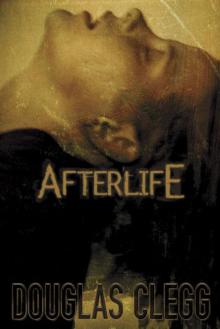 Afterlife
Afterlife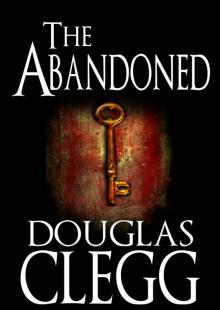 The Abandoned - A Horror Novel (Thriller, Supernatural), #4 of Harrow (The Harrow Haunting Series)
The Abandoned - A Horror Novel (Thriller, Supernatural), #4 of Harrow (The Harrow Haunting Series) The Queen of Wolves
The Queen of Wolves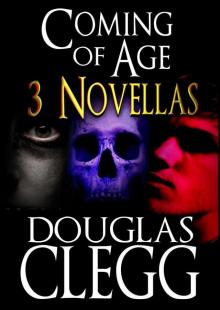 Coming of Age: Three Novellas (Dark Suspense, Gothic Thriller, Supernatural Horror)
Coming of Age: Three Novellas (Dark Suspense, Gothic Thriller, Supernatural Horror)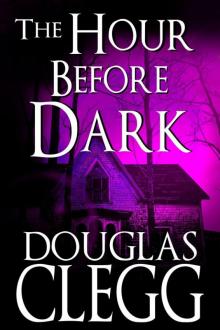 The Hour Before Dark
The Hour Before Dark Isis
Isis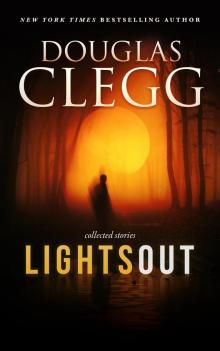 Lights Out
Lights Out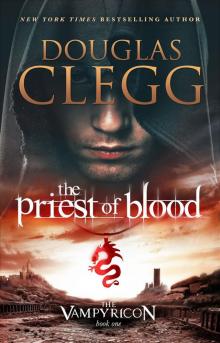 The Priest of Blood
The Priest of Blood Criminally Insane: The Series (Bad Karma, Red Angel, Night Cage Omnibus) (The Criminally Insane Series)
Criminally Insane: The Series (Bad Karma, Red Angel, Night Cage Omnibus) (The Criminally Insane Series) Halloween Candy
Halloween Candy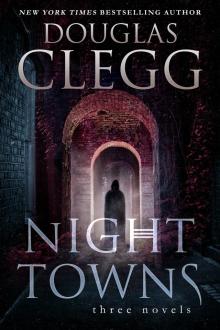 Nights Towns: Three Novels, a Box Set
Nights Towns: Three Novels, a Box Set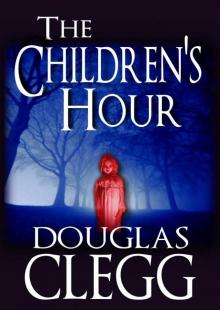 The Children's Hour - A Novel of Horror (Vampires, Supernatural Thriller)
The Children's Hour - A Novel of Horror (Vampires, Supernatural Thriller)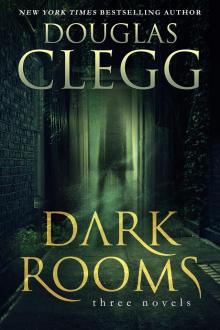 Dark Rooms: Three Novels
Dark Rooms: Three Novels![[Criminally Insane 01.0] Bad Karma Read online](http://i1.bookreadfree.com/i2/04/10/criminally_insane_01_0_bad_karma_preview.jpg) [Criminally Insane 01.0] Bad Karma
[Criminally Insane 01.0] Bad Karma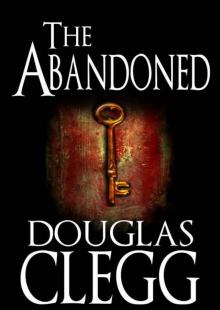 The Abandoned - A Horror Novel (Horror, Thriller, Supernatural) (The Harrow Haunting Series)
The Abandoned - A Horror Novel (Horror, Thriller, Supernatural) (The Harrow Haunting Series) Halloween Chillers: A Box Set of Three Books of Horror & Suspense
Halloween Chillers: A Box Set of Three Books of Horror & Suspense